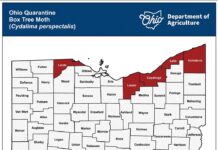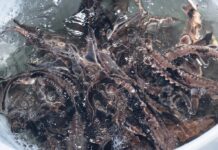UNIVERSITY PARK, pa. — “It’s not a light at the end of the tunnel, it’s a train!” was just one morsel of wisdom offered to members of Penn State’s Block and Bridle Club Oct. 13, by the internationally known animal behaviorist, Dr. Temple Grandin.
In regard to this particular bit of advice, she was referring to the future of agricultural advancements and the potential for many mistakes on the road to higher productivity.
A professor of animal science at Colorado State University and a designer of livestock handling facilities, Grandin consults widely on animal handling practices and has written dozens of articles on the topic as well as three books.
Keep learning
Of the topics discussed at the informal gathering, Grandin kept returning to one major point: Farmers and animal handlers need to keep learning about the proper techniques of handling livestock.
She commended the ag community for many advancements since the mid-1900s, most of which the general public is unaware. But she begged the question, “How do you determine good handling?”
She explained that by measuring outcomes such as percentages of those cattle that fell, vocalized, or ran out of a cattle chute, we can determine good handling. If the percentages are high, the farmer knows he/she has improvements to make.
System overload
The critique that she made about current trends in farming is something she calls “biological system overload.”
The push for bigger and more productive animals, particularly females, may equal “higher” performance, but not necessarily “optimal” performance. She fears that by pushing genetics, animals will become overused too quickly and life spans and health will decline.
Open the barn door
After her talk about production, she touched on several other issues about public relations and public perception, noting that agriculture needs to have a more “open door” policy, meaning that the ag sector from farm to plate needs to do a better job of showing the consumer how we handle, process, and slaughter animals.
Saying that we have nothing to be ashamed of, she questioned why we feel the need to be secretive.









